Foreign countries pitch to Americans in Texas
- Published
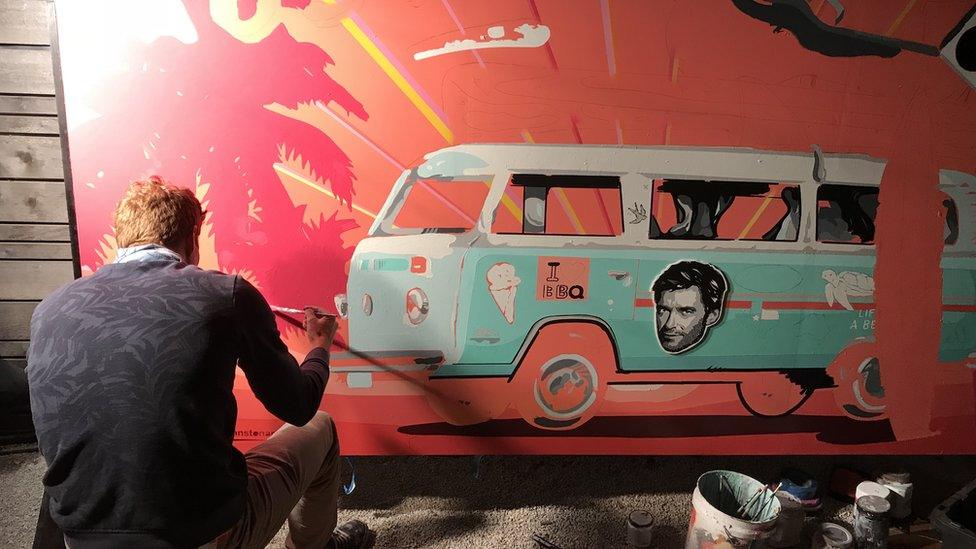
An artist draws an Austin-themed mural at the Australia House's opening night party
The South by Southwest festival in Austin, Texas, once known only as a quirky week of musical performances, has become a showcase for national pride and self-promotion.
In the past few years SXSW, as it's abbreviated, has grown into a technology summit, a film festival and - thanks to the increasing presence of foreign governments - a mix of Disney-style paeans to cultural identity and the kitsch of a world's fair, with a heavy dose of booze and partying.
All across downtown Austin, national tourism and trade bureaus have rented out entire restaurants, bars and even homes and changed them, for more than a week of events, into miniature embassies of culture and business.
Several national airlines have even offered a handful of special non-stop flights from their home nations to Austin just to help their residents make the trip to the heart of Texas.
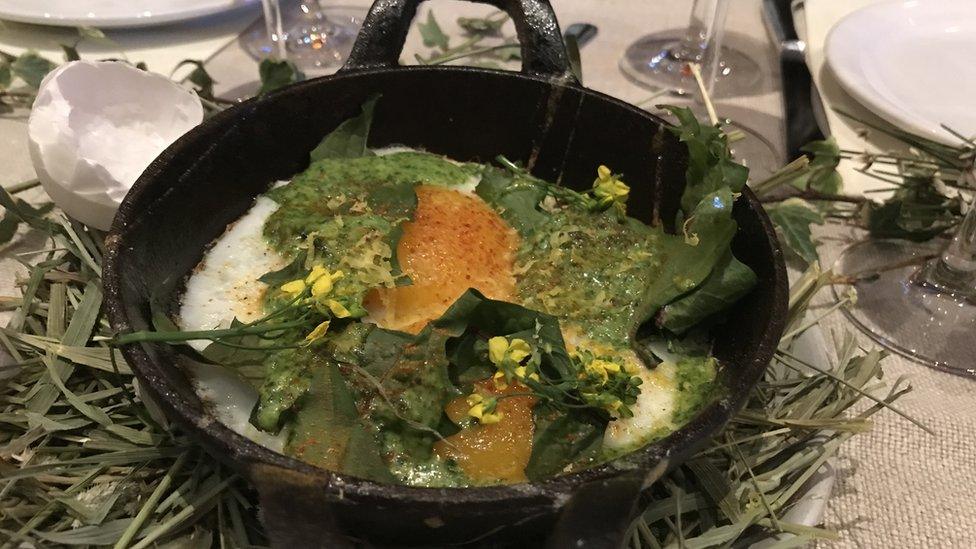
Danish chef Mads Refslund prepared dinner for some fortunate conference attendees
Denmark brought Michelin-rated chef Mads Refslund from New York to create Nordic-inspired appetisers for visitors to the Scandinavia House and cook a multi-course dinner - with offerings like raw sweet shrimps with fermented plums and oxalis and fire-roasted bone marrow - for select guests in a private dining room.
"We're a very small country, and the competition is harsh," says Anja Hartung, head of business development at VisitDenmark. "But on the food scene, I think we have some strong offerings."
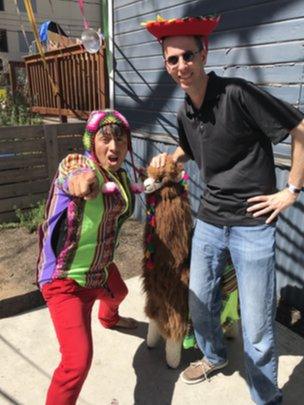
Befuddled SXSW participant Anthony Zurcher poses with a Peruvian and his stuffed llama
Denmark also provided seminars in hygge - the lifestyle and attitude that Hartung says is the key to her nation's happiness.
For a week and a half in Austin, at least, every country at South by Southwest is promoting something - whether it's happiness, technology, art or music.
The German Haus offers sausage and giant pretzels along with a heavy dose of techno music. Belgium's pavilion serves up flights of its traditional wheat beers. Australia opened with a barbecue party - shrimp, barramundi and lamb - while a giant screen replayed coverage of an Australian surfing competition. The following day it plied visitors with a selection from their top vineyards.
But what exactly do the various countries hope to get out of their presence here? (Besides, of course, the not-to-be-discounted opportunity for various foreign officials to enjoy Austin's mild climate and sample the city's extensive assortment of breakfast tacos.)
"It's a great chance to show off what's good about the UK," says Ross Allen, director of the British Department for International Trade for North America. "It's a chance to generate concrete business leads, to make new export opportunities and new investments."
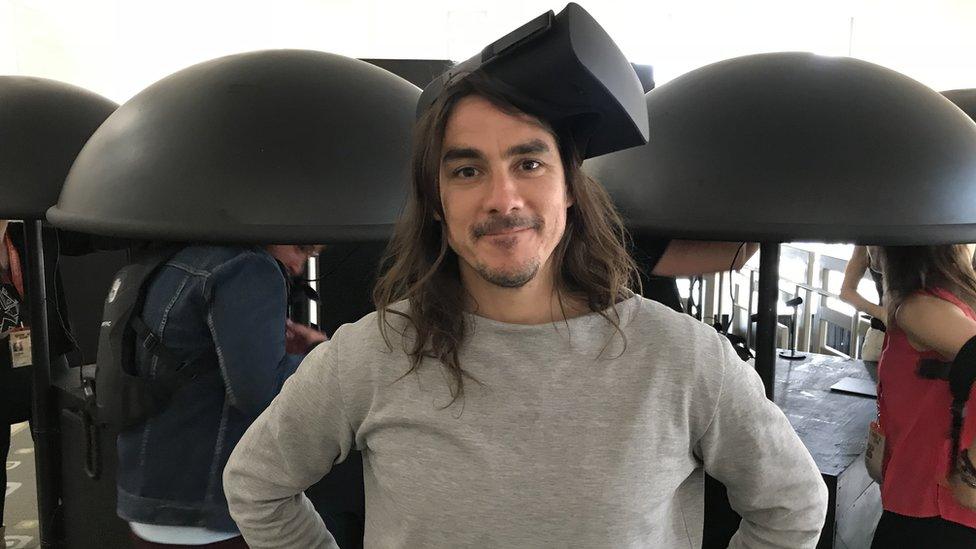
Robin McNicholas in front of his UK-sponsored virtual reality art installation at South by Southwest
The UK has the biggest foreign presence in Austin again this year, with hundreds of companies and over a thousand people. Unlike some countries, Allen says, they don't have to be quite as rah-rah about their presentations.
"Sometimes we're really in-your-face British, and stick the flag all over it," he says. "And sometimes we push the British stuff back a little bit because you want it to be much subtler."
The UK's opening reception, for instance, featured Mexican food along with music from British DJs.
One of the UK's flagship exhibits, a virtual-reality art installation called Colossal Wave, was a collaboration that arose when UK-based Marshmallow Laser Feast met a Canadian team at last year's South by Southwest. Participants don headsets that let them float like musical angler fish or rise above a surreal sea as geese fly by and a psychedelic wave crashes overhead.
Every year new nations join the Austin frenzy. Peru rented out a house on Rainey Street, not too far from Australia's home - a veritable embassy row a few blocks from downtown. Visitors can pose with a giant stuffed llama, take a virtual tour of Machu Picchu and sip an alcohol concoction called Pisco punch.
Africa also has its first-ever presence at the festival. A group of African nations opened with a late-night dance party featuring regional performers, followed by a series of lectures on the continent's growing business enterprises.
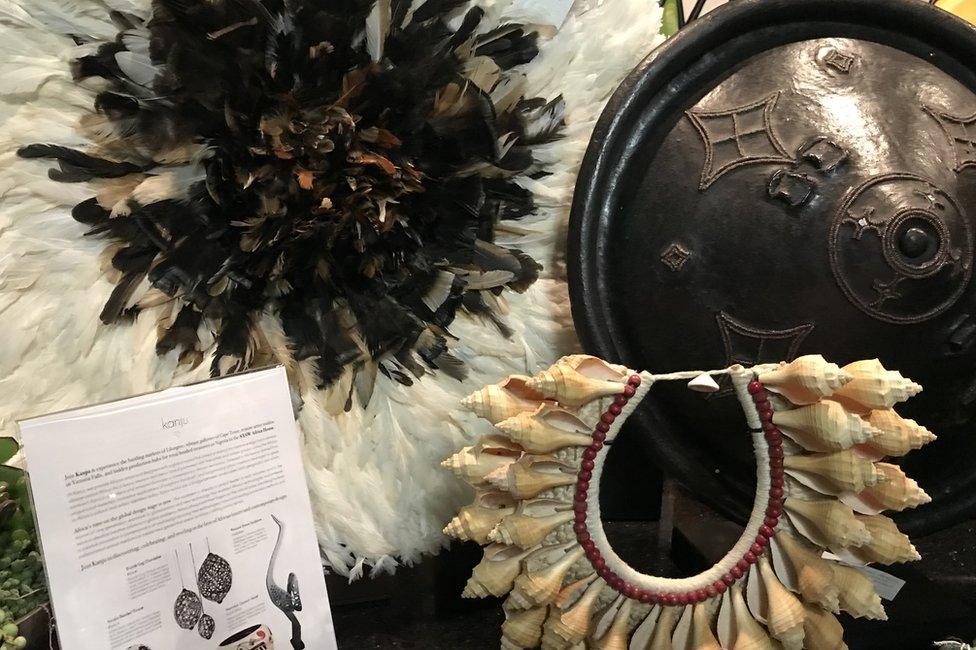
In a panel on Nigerian technology companies one morning, moderator Aubrey Hruby explained that Americans and Nigerians have a lot in common. They both can be assertive and boisterous. They're entrepreneurial and ambitious. As Nigeria grows, they could form valuable business partnerships.
There's more that unites us than divides us, she concluded.
If that sounds a bit like a Disney World slogan, it probably is.
After a week of music, libations and decadence, however, it starts to make perfect sense.